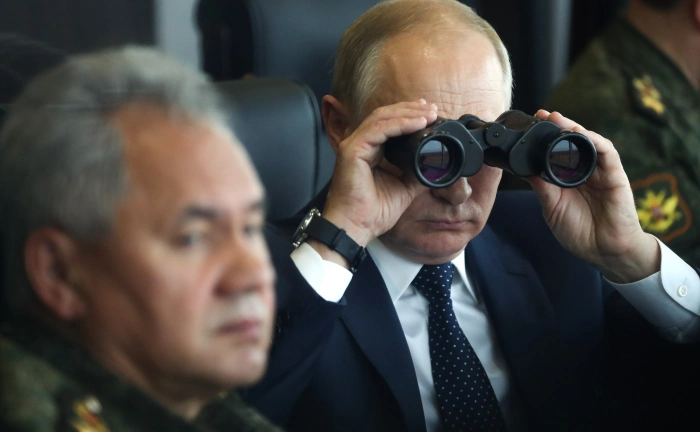Russia, not very 'optimistic' about the current situation in Afghanistan, continues to be gravely concerned about terrorists destabilising the situation in neighbouring countries.
Moscow is worried that terrorists from Afghanistan can penetrate into the states of the Central Asian region, and from there into Russia through the Russian-Kazakh section of the state border.
In an interview to state-run newspaper Rossiyskaya Gazeta, Alexander Grebenkin, Deputy Secretary of the Russian Security Council, has said that developments in Afghanistan after the return of "international terrorist organisation" Taliban does not give "cause for optimism".
Threats emanating from the Afghan territory were discussed extensively during Russian President Vladimir Putin's meeting with the permanent members of the Security Council on November 19 where the aggravated situation on the state border was analyzed.
"Further degradation of the socio-political situation in this country against the background of the impoverishment of the population and extrajudicial reprisals against its own citizens creates a real threat of a significant increase in the scale of drug trafficking, arms smuggling and uncontrolled migration," Grebenkin told the newspaper.
"This also applies to persons committed to radical ideology and having experience in military operations," the top official added.
IndiaNarrative.com had in October reported about Putin admitting at the annual meeting of the security chiefs of Commonwealth of Independent States (CIS) that terrorists on the warpath from conflict zones in Syria and Iraq are being redirected to Afghanistan after Taliban's return.
"Militants with experience in waging war in Syria and Iraq are being drawn there. So, it is possible that terrorists might try to destabilise the situation in neighbouring countries, including the CIS countries, and go as far as starting to expand outrightly," Putin had said at the meeting of CIS Heads of Security Agencies and Intelligence Services.
Instability in Kabul having wider ramifications for the region was also on top of the agenda during the 'Delhi Regional Security Dialogue on Afghanistan' held earlier this month which was chaired by India's National Security Advisor Ajit Doval.
Security bosses of five Central Asian countries – Kazakhstan, Kyrgyzstan, Tajikistan, Turkmenistan and Uzbekistan – besides Russia and Iran, deliberated upon measures to address the relevant security challenges in the region during the dialogue.
Grebenkin, in his interview to Rossiyskaya Gazeta, emphasised that risks of penetration of members of international terrorist and extremist organisations into Russian territory, as well as of means of sabotage and terror, is very much real.
"This is due to an increase in the number of hotbeds of military-political instability near our borders," he explained.
Russia's Federal Security Service FSB, together with the Ministry of Internal Affairs, the Ministry of Defence, the Federal Customs Service, the Russian Guard and other departments, are implementing plans to counter terrorism and cross-border crime.
"Measures are being taken to improve the technical potential of border agencies, equip them with modern weapons, military and special equipment. The latest radar stations, thermal imaging and optical systems and high-tech signaling systems are widely used in the protection of land and sea sections of the border," said Grebenkin.




















